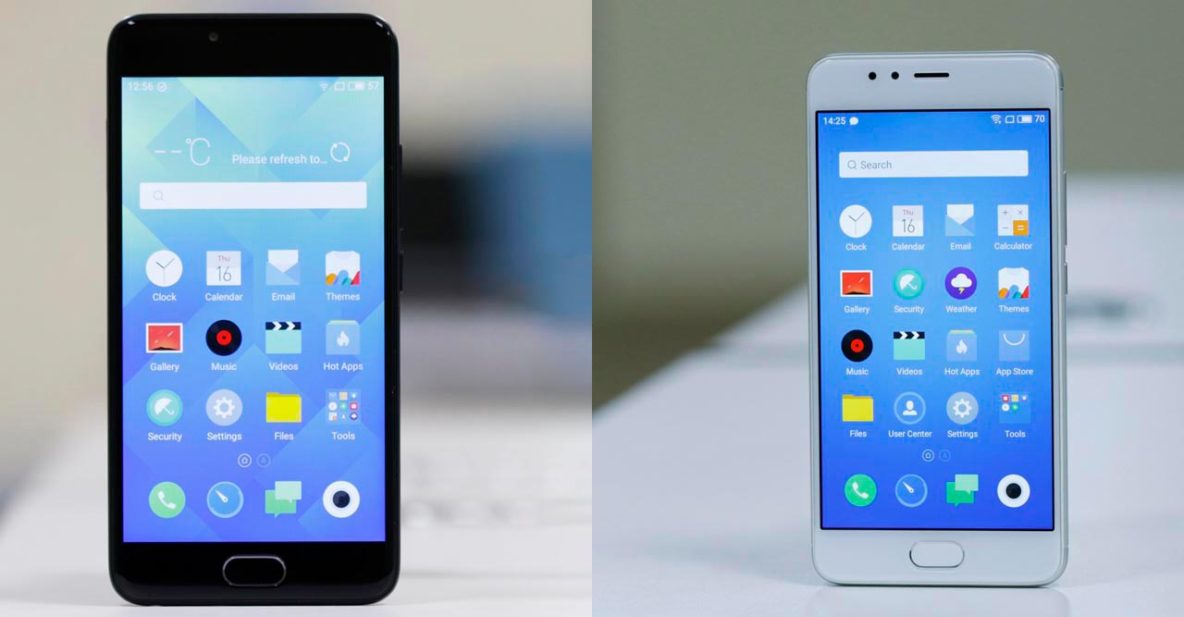And admittedly, the Guangdong-based company hopes to achieve the same success that its peers from China are enjoying today. But while the likes of OPPO and Vivo are putting front-facers in the driver’s seat in hopes of driving sales of their most expensive models, Meizu is turning to the tried-and-true formula of good specs and low prices for direction.
SEE ALSO: Meizu M5 and M5 Note now available in PH
There’s really nothing wrong with that, of course. The same formula has worked for Xiaomi and a few others, including Meizu, but to a lesser degree. Still, we wonder: Will it work here? It’s not like the market is lacking well-specced and well-priced options now. Without any identifiable trait to call their own, these phones may as well have come from another upstart brand.
Nevertheless, if you fancy a plucky budget phone that punches above its weight in tech and build but, unfortunately, not much else, then definitely keep the Meizu M5 and M5s on your shortlist of prospects.
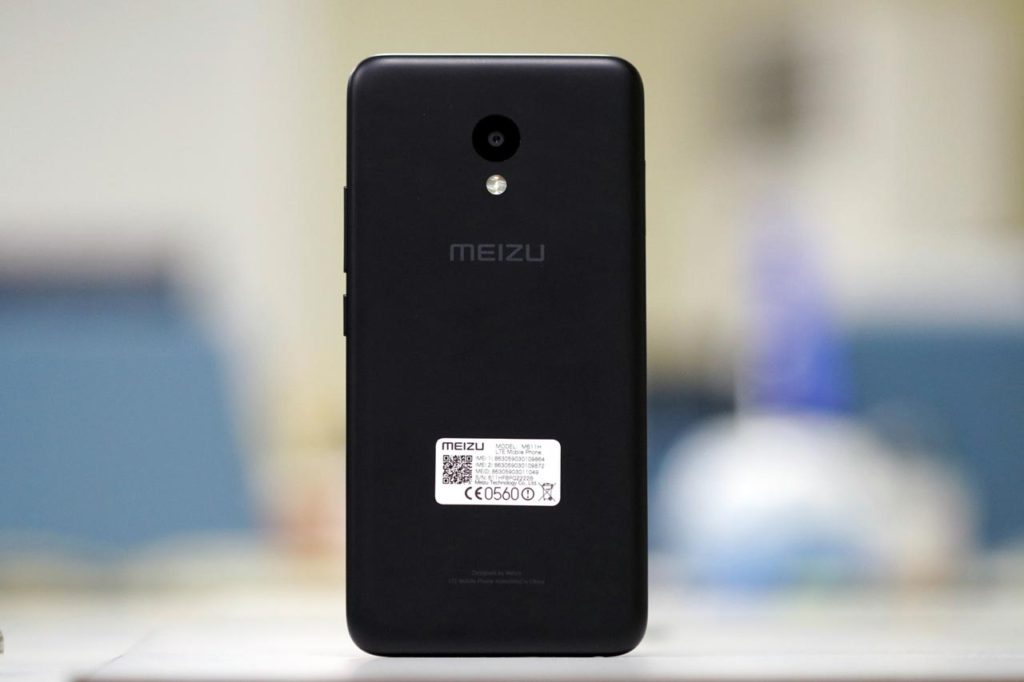
The Meizu M5
Meizu M5 (P6,990 or around $140 for the 2GB RAM/16GB storage model)
Meizu’s cheapest offering is also arguably its strongest from a value-for-money perspective. That is, if you don’t mind the use of a plastic back cover that is made to look and feel like metal. It’s nothing fancy and only tips the scales at 138 grams. And with a 5.2-inch screen, it’s close to the optimum size for one-handed use. Your fingers still need to stretch to reach the top and side buttons, but not too much.
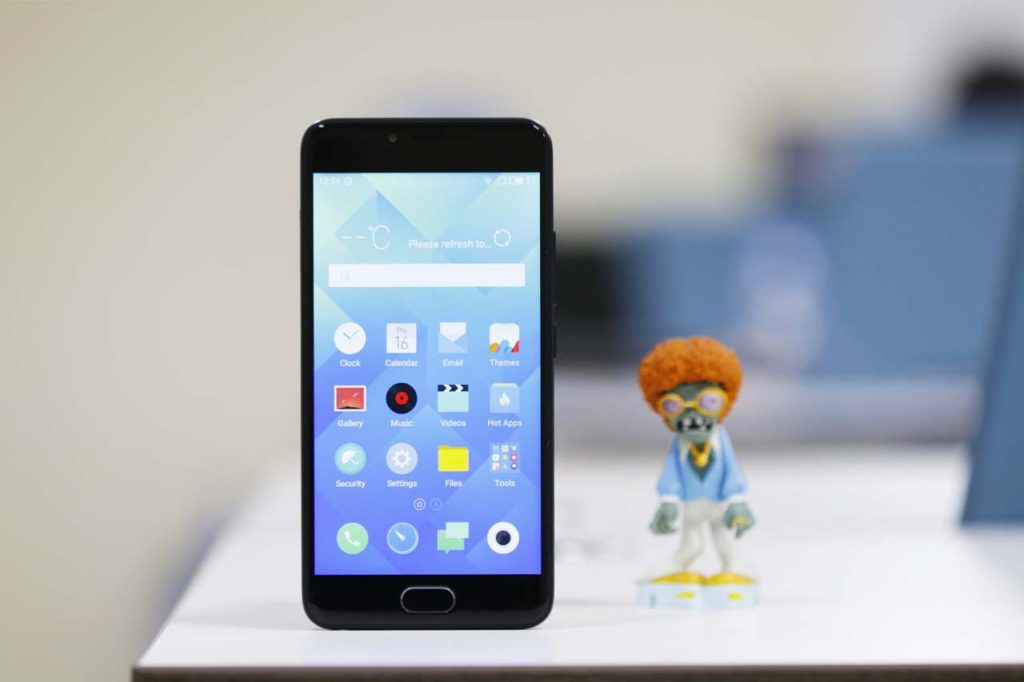
The Meizu M5’s 5.2-inch screen is close to the optimum size for one-handed use.
Speaking of, the power button and the volume rocker can easily be located on the right-hand side with the screen facing you. We liked that the sides are curved and lend to a comfortable feel in the hand as well. What we don’t like is that Meizu has gone with a matte finish this time, because it picks up fingerprints and smudges too easily, which a fair number of people might find difficult to ignore, much less dismiss.
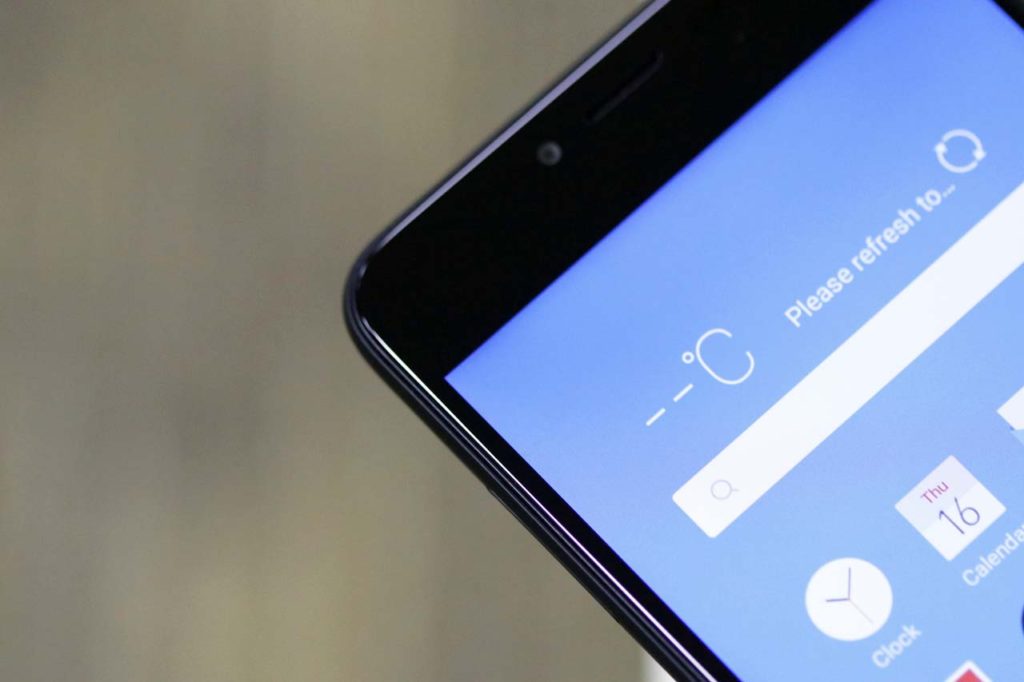
We liked that the Meizu M5’s sides are curved and lend to a comfortable feel in the hand.
The face of the phone has relatively thin side bezels and includes a fingerprint sensor underneath the lone navigation key. Yep, you read that right. Welcome to the world of Meizu phones. Unlike other Android devices we know, the Meizu M5 features a physical button below the display. This functions as a shortcut for the home (when pressed) and back (when tapped) keys, while swiping up from the bottom of the display brings the recent-apps carousel up.
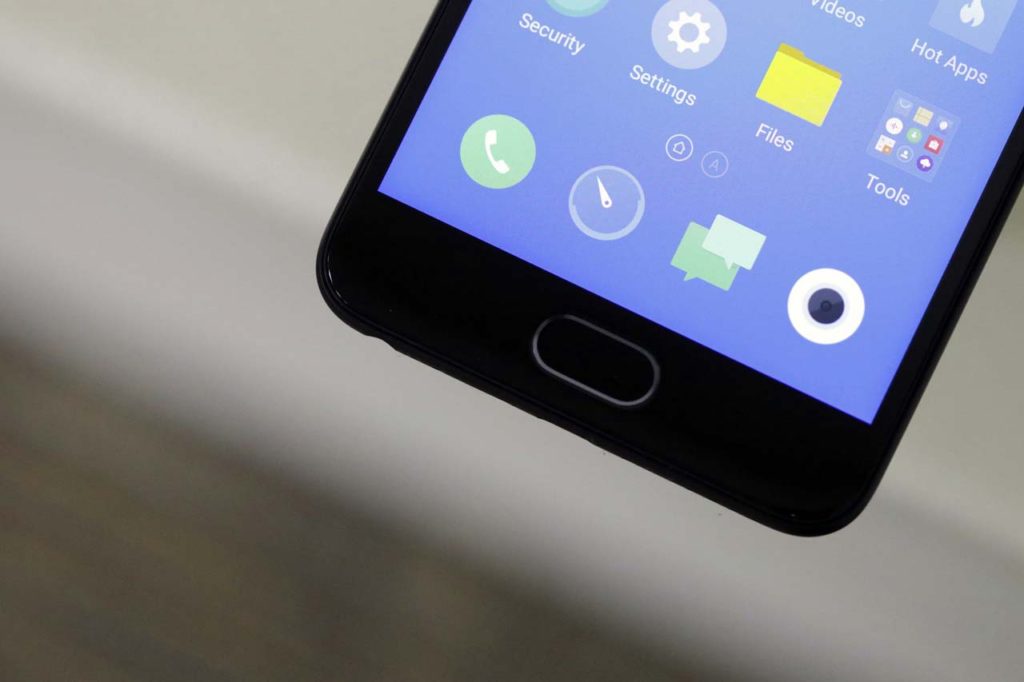
The lone navigation key below the display functions as a shortcut for the home (when pressed) and back (when tapped) keys.
The latter doesn’t always work as intended, though it could be fixed with a software update. And while that may sound optimistic, we’ll go with Android’s standard (read: software or hardware) navigation keys any day.
Under the hood, the unit we tested sees an octa-core chip from MediaTek with 2GB of RAM and 16GB of expandable storage (though more expensive variants sold in China can have up to 3GB of RAM and 32GB of built-in memory).
It’s an MT6750 silicon this time around, and the phone’s responsiveness is pretty spot-on, with the exception of the multitasking gesture. For those of you living in the land of benchmark numbers, the Meizu M5 consistently reached the 40,000 mark on Antutu Benchmark, which is quite impressive given the specifications.
The Meizu M5 consistently reached the 40,000 mark on Antutu Benchmark, which is quite impressive given the specifications.
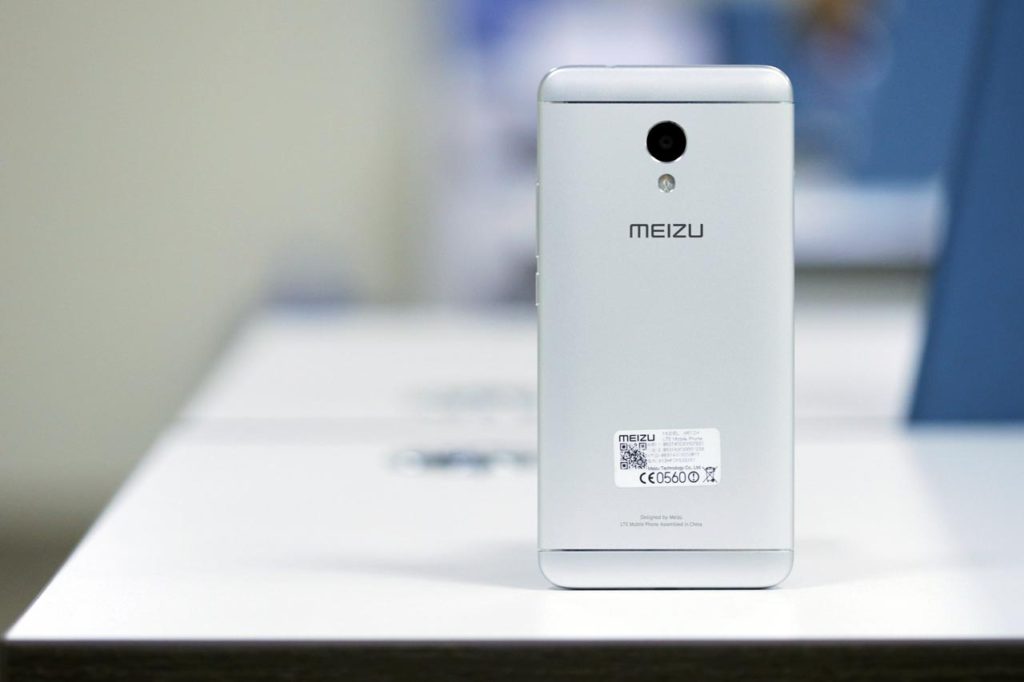
The Meizu M5s
Meizu M5s (P8,990 or $180 for the 3GB RAM/32GB storage model)
The middle child of the M5 lineup, the M5s drops the M5’s wholly plastic shell and upgrades to a composite back that is mostly metal but complemented by plastic strips at the top and bottom. The result is a decidedly better-looking handset that, from the outside, seems more expensive than the pricing indicates.
The Meizu M5s’ metal backplate also means you can expect to see a lot less fingerprints. It’s a tad thicker than the regular M5, though, which is surprising considering the two are almost interchangeable in terms of battery capacity. Between the two, it’s the M5 that actually feels smoother — and therefore better — when held.
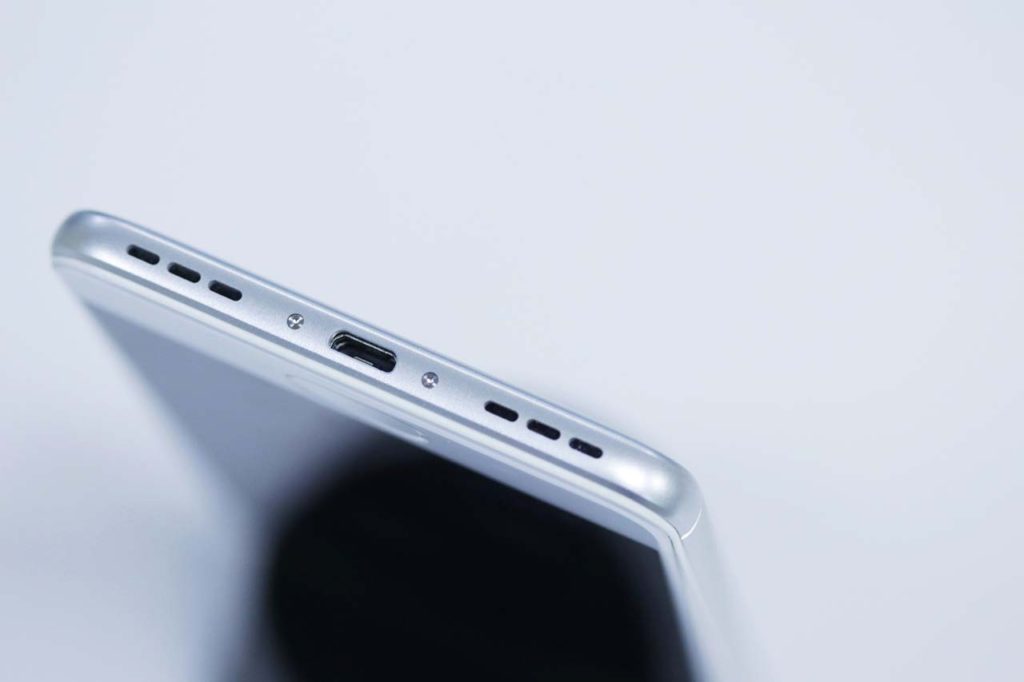
The Meizu M5 actually feels smoother — and therefore better — than the M5s when held.
The LCD display measures 5.2 inches and maxes out at 720p, and picture quality is good for a budget smartphone. Most importantly, it should be plenty sufficient for just about anything you would want to do on the screen.
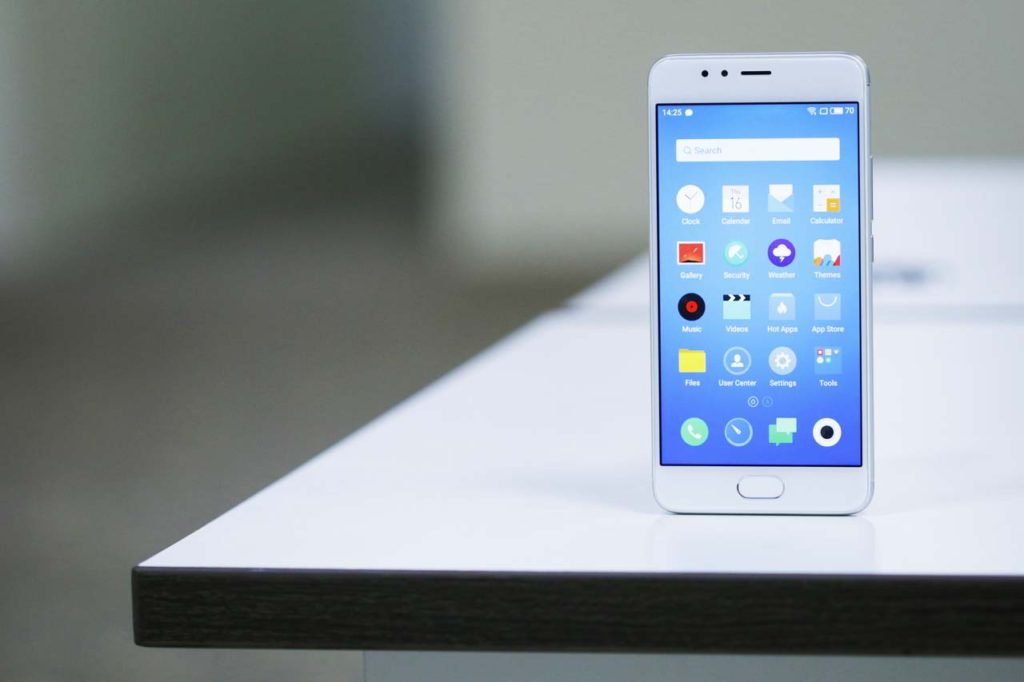
The picture quality on the Meizu M5s’ 5.2-inch LCD display is good for a budget smartphone.
There’s a single navigation key on the front; it works just as it was designed to work on a Meizu device. Which is to say, non-Meizu users will be wading into unfamiliar territory. With that territory comes a learning curve. The button, as you may have hoped, doubles as a fingerprint scanner. It isn’t always on, meaning you’ll need to press the button or wake the phone to get it to sniff out fingerprints.
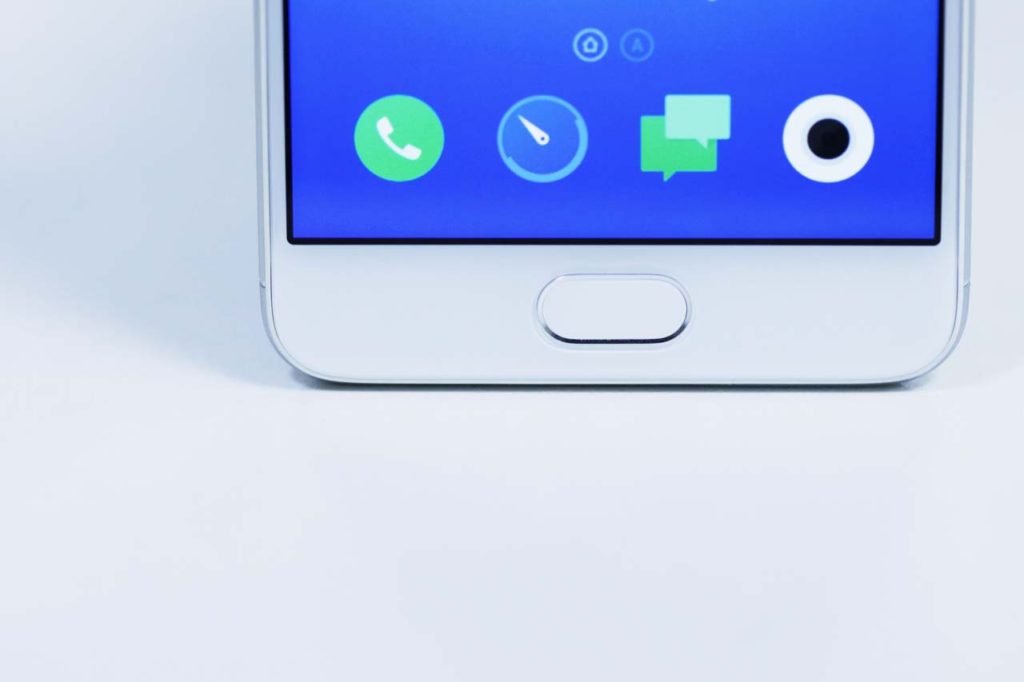
The single navigation key on the front doubles as a fingerprint scanner.
Specs-wise, our unit touts a MediaTek MT6753 processor with 3GB of RAM and 32GB of internal storage. The RAM and storage configuration is more than decent enough for its intended market.
Regrettably, the graphics processor the phone ships with is inferior to that of the M5. And it shows on the Antutu Benchmark figures: Whereas the regular model notched over 40,000 points, the S version scored a few thousand points less. Not that those results should matter a whole lot in practice, except when playing a complex 3D game.
Camera shootout
Finally, let’s take a look at some indoor shots taken with the Meizu M5’s and M5s’ rear and front cameras. We’re told both come with the same pair of sensors (16 megapixels round the back and 5 megapixels on the front), but you might not be able to tell by looking at these samples.
The M5s makes images appear more contrasty and saturated, independent of the resolution, making it the winner of this segment. Selfies aren’t either handset’s forte, but neither disappoints.
[sciba leftsrc=”https://www.revu.com.ph/wp-content/uploads/2017/03/Meizu-M5-sample-photo.jpg” leftlabel=”Meizu M5 ” rightsrc=”https://www.revu.com.ph/wp-content/uploads/2017/03/Meizu-M5s-sample-photo.jpg” rightlabel=”Meizu M5s” mode=”horizontal” width=””]Comparison: Meizu M5 vs Meizu M5s sample photos
[sciba leftsrc=”https://www.revu.com.ph/wp-content/uploads/2017/03/Meizu-M5-sample-selfie.jpg” leftlabel=”Meizu M5 ” rightsrc=”https://www.revu.com.ph/wp-content/uploads/2017/03/Meizu-M5s-sample-selfie.jpg” rightlabel=”Meizu M5s” mode=”horizontal” width=””]Comparison: Meizu M5 vs Meizu M5s sample selfies
Pricing and final thoughts
The Meizu M5 (2GB RAM and 16GB storage) goes for P6,990 in the Philippines, while the M5s (3GB RAM and 32GB storage) will cost you P2,000 more. And while that may not seem like a lot for an Android Marshmallow phone with a fingerprint sensor, the extra cash doesn’t translate into a better product across the board. An even classier phone replete with more memory, for sure. But a no-brainer upgrade, the Meizu M5s is certainly not.
Share this Post


